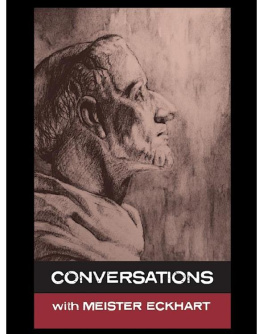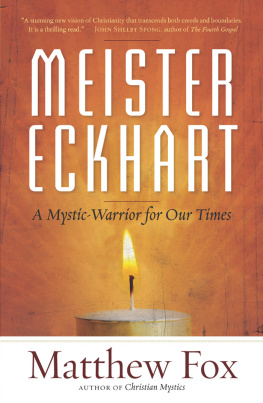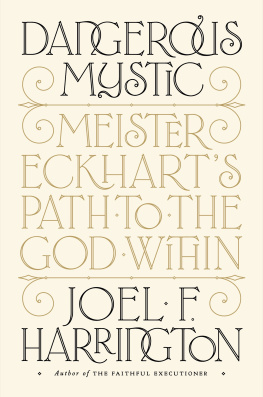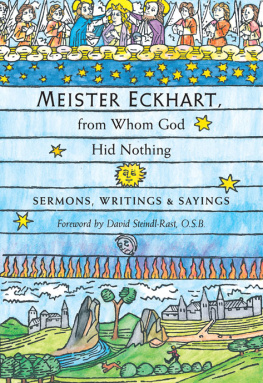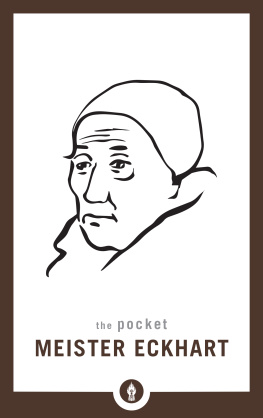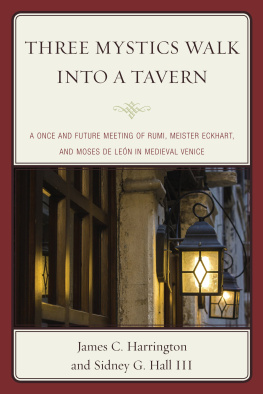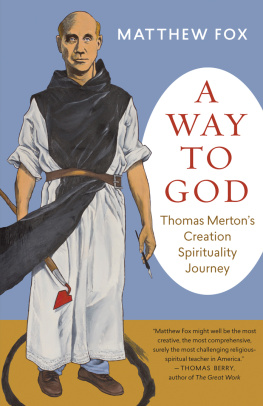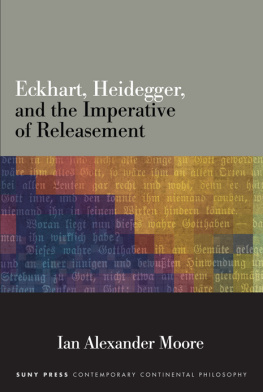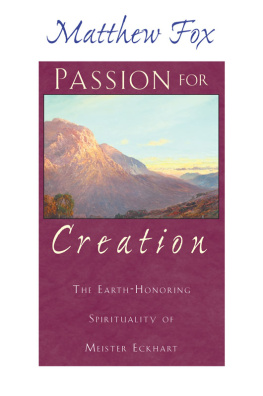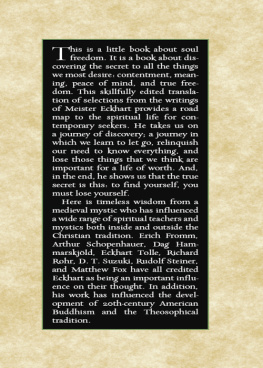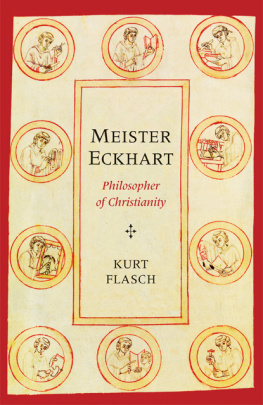Meister Eckhart - Conversations with Meister Eckhart: In His Own Words
Here you can read online Meister Eckhart - Conversations with Meister Eckhart: In His Own Words full text of the book (entire story) in english for free. Download pdf and epub, get meaning, cover and reviews about this ebook. year: 2010, publisher: White Crow Productions Ltd, genre: Religion. Description of the work, (preface) as well as reviews are available. Best literature library LitArk.com created for fans of good reading and offers a wide selection of genres:
Romance novel
Science fiction
Adventure
Detective
Science
History
Home and family
Prose
Art
Politics
Computer
Non-fiction
Religion
Business
Children
Humor
Choose a favorite category and find really read worthwhile books. Enjoy immersion in the world of imagination, feel the emotions of the characters or learn something new for yourself, make an fascinating discovery.
- Book:Conversations with Meister Eckhart: In His Own Words
- Author:
- Publisher:White Crow Productions Ltd
- Genre:
- Year:2010
- Rating:5 / 5
- Favourites:Add to favourites
- Your mark:
Conversations with Meister Eckhart: In His Own Words: summary, description and annotation
We offer to read an annotation, description, summary or preface (depends on what the author of the book "Conversations with Meister Eckhart: In His Own Words" wrote himself). If you haven't found the necessary information about the book — write in the comments, we will try to find it.
Conversations with Meister Eckhart is an imagined conversation with this 13th century mystic, around such themes as detachment, which he famously placed above love; spirituality, God, the soul and suffering. But while the conversation is imagined, Eckharts words are not; they are authentically his own.
In many ways, Meister Eckhart has had to wait seven centuries to be heard. Born in 13th century Germany, much of his life was spent in a monastery; though not all. The Meister in his name means Master, and is an academic title from the University of Paris. An admired member of the Dominican Order, he was often sent to reform ailing priories. He was known also as a spiritual counsellor; a safe haven for many who sought God in their life, but found themselves troubled by the dire state of the institutional church. And in a century of flowering female spirituality, he was a supportive figure for many Dominican nuns and women in the burgeoning lay communities which arose.
He was best known, however, as a preacher an original preacher who used his native German language to startling effect. Eckhart preached a spiritual vision which distrusted the artifice of both ritual and church dogma. Instead, he aimed at nothing less than the spiritual and psychological transformation of those given to his care. To this end, Eckhart made the disposition of the human heart the key to all things.
Conversations with Meister Eckhart is an imagined conversation with this 13th century mystic, around such themes as detachment, which he famously placed above love; spirituality, God, the soul and suffering. But while the conversation is imagined, Eckharts words are not; they are authentically his own.
One of his controversial claims was that God cannot be described. Indeed, in one sermon, he went so far as to say We must take leave of God. The church became very hostile towards him, says Simon Parke, accusing him of heresy; and he spent his last days on trial before the pope. They also tried to ensure hed be forgotten when he died, and nearly succeeded. But hes more popular now than ever.
Eckharts teaching is an adventure, not a system; a call, not a creed. The depth and universality of his work means it can be contained by no established religion, but draws to itself seekers of truth from all backgrounds. Here we have a teaching open to all, but possessed by none, says Parke. And therefore free like a butterfly, in the garden of the soul. Its perhaps my most challenging and rewarding conversation.
Meister Eckhart: author's other books
Who wrote Conversations with Meister Eckhart: In His Own Words? Find out the surname, the name of the author of the book and a list of all author's works by series.

